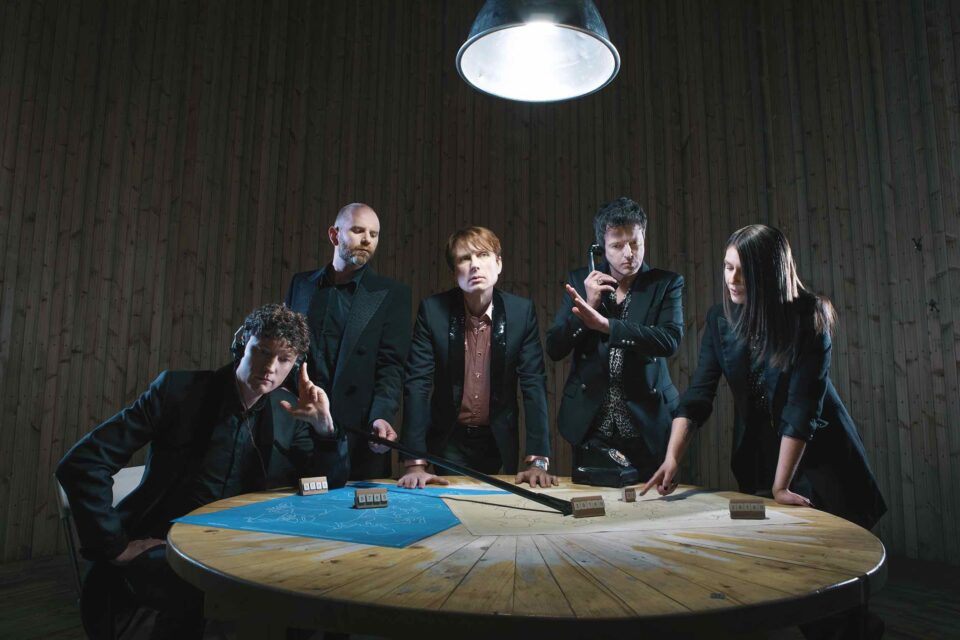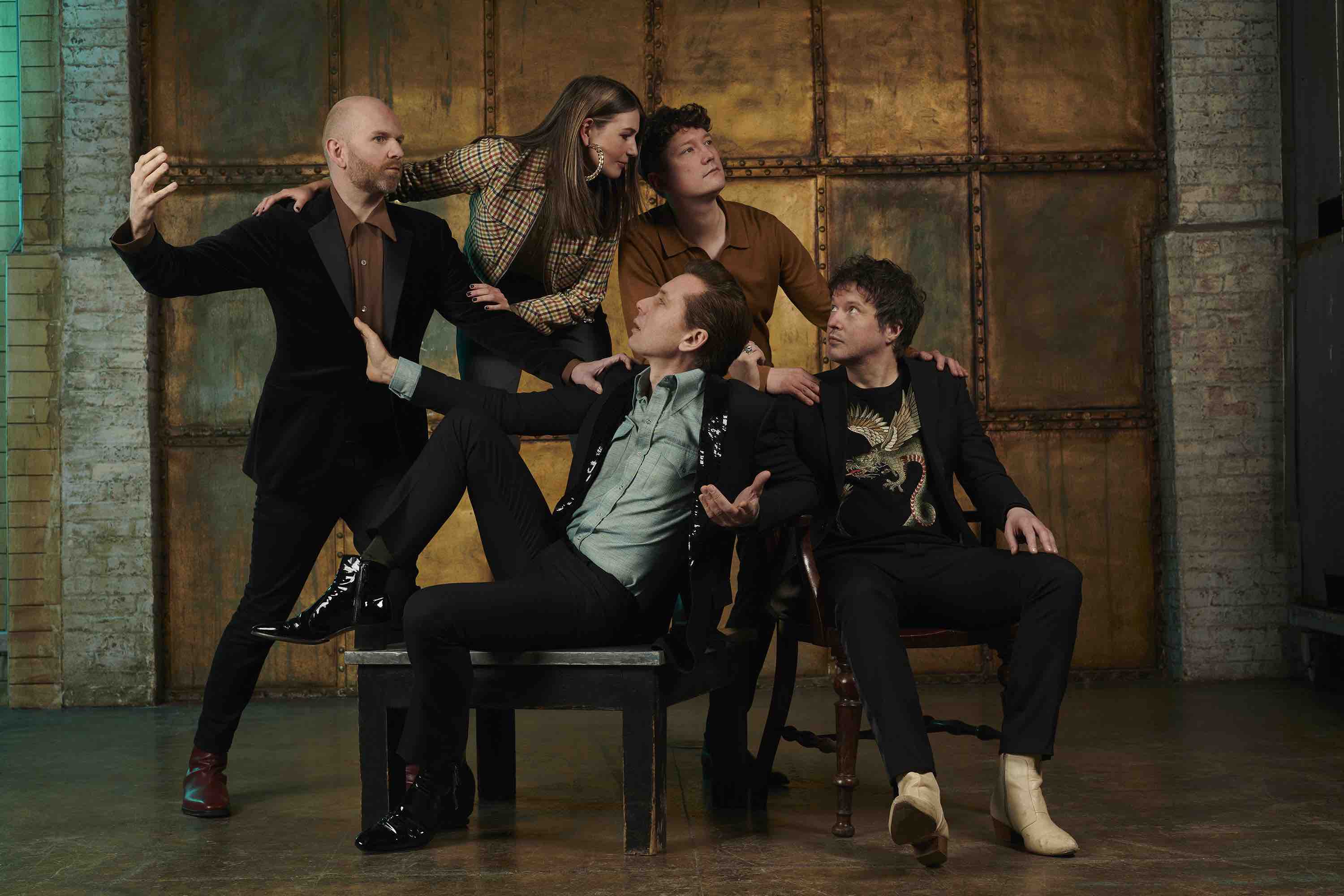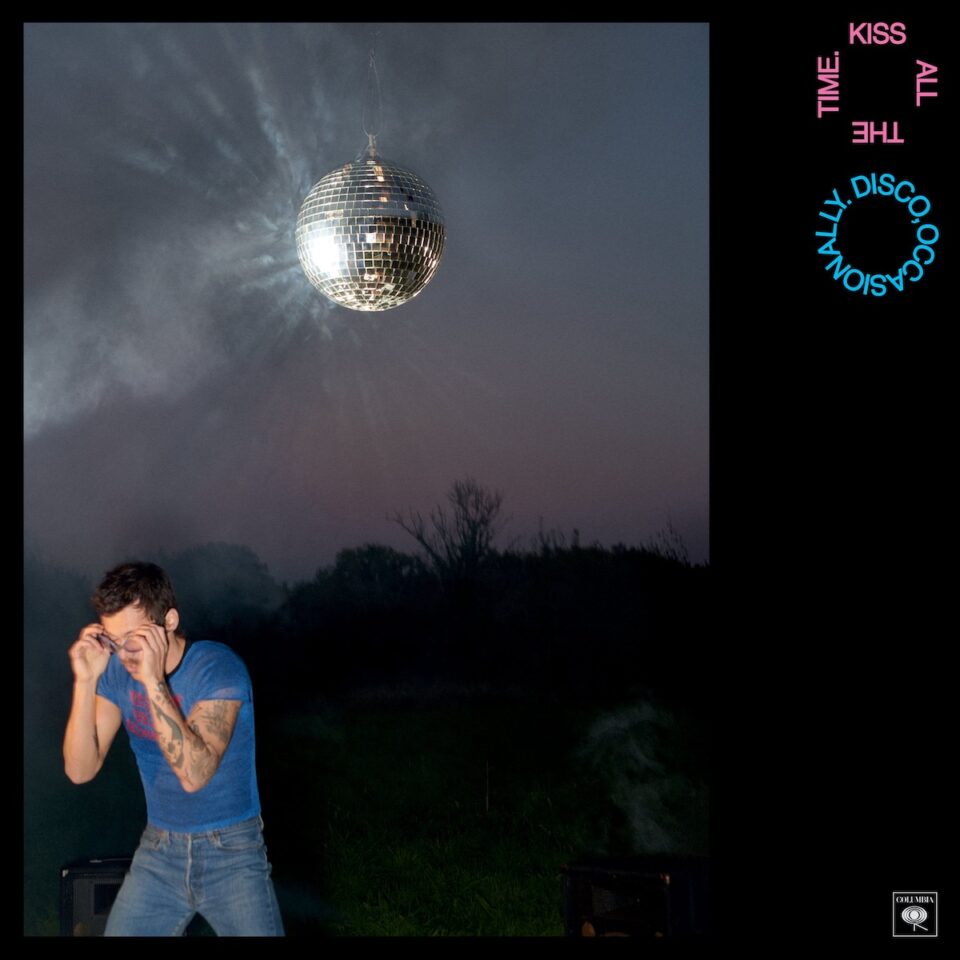The morning that drummer Paul Thomson officially left Franz Ferdinand last fall, bandleader and chief songwriter Alex Kapranos addressed his remaining bandmates: co-founding bassist Bob Hardy, keyboardist Julian Corrie, and guitarist Dino Bardot (who joined the band in 2016 when original guitarist Nicholas McCarthy departed). “‘Right, how do you feel? Are you excited about this music?’” he asked them. “‘Do you want to keep playing music in the context of this band? Because now's the time to say yes or no.’”
The others said they were excited to keep pushing forward—something Franz Ferdinand has seemingly always done—and Kapranos said that the next order of business, even before running through new song “Curious,” was to find a new drummer. Because they were a Glasgow band, the drummer needed to be from that city. When local artist Audrey Tait came in for an audition at the band’s studio, Kapranos handed her “Curious.” “It's deceptively simple, but the hi hat pattern is kind of weirdly complicated,” Kapranos explains on a video call from the studio. “The hi hat is going, ‘Chka-ch-ch-ch/chka-ch-ch-ch/chka-chka-chka-ch,’ which is a really difficult thing to remember and to pull off, but it makes the song flow in a way that’s really cool. She just got it like that, and the whole feel felt really fucking good.” By that point, Kapranos says, everyone got along swimmingly and knew that she was Franz Ferdinand’s new drummer. “Being in a band is like being in a gang, and she’s a very cool gang member,” he says.
“Curious” is one of two new songs on Franz Ferdinand’s forthcoming retrospective album, Hits to the Head. But just because Kapranos and company are looking back for a change doesn’t mean they aren’t also looking ahead at the next stage of the band. Kapranos has stayed busy promoting Hits and the new songs, filming videos with directors Diane Martel and Andy Knowles (the latter of whom went to art school with Hardy and was a touring member of Franz Ferdinand for a while), and recording demos for a new album, which is well in the works. “It was a frustrating few years not being able to get together with everybody and record, and I wanted to make new music,” Kapranos says. When he gave the other members an out from the band if they so chose, he didn’t feel like it was the end—and he was hoping they didn’t either. “Like any major emotional endeavor involving others, consent needs to be given. They were well up for it, shall we say,” he laughs.
“It was a frustrating few years not being able to get together with everybody and record, and I wanted to make new music.”
Kapranos says he’s written some songs and has even demoed a few. Some have been tracked by the band since last fall. They’re not anywhere close to being done, however, so that release is still at least a year down the line. The lead-in for vinyl pressings is about eight months at the moment because of scarcity and delivery delays. “It’s simply because of the logistics of releasing a record nowadays, which I find really frustrating, because in some ways you can get stuff out immediately,” he says. “I could write something just now and stick it up on Spotify, and the rest of the world could hear it literally within hours. Yet to put a record out, it's going to take you fucking almost a year to do it.”
With hindsight, it was around the end of their last major tour when Kapranos knew Thomson might depart the band, Kapranos says. The drummer had broken his hand and missed several months of touring, with the rest of the band continuing on without him. When he returned, they were in the middle of some massive festival appearances in Latin America, including Corona Capital, where Kapranos says there were about 150,000 people in the crowd. The rest of the band was in the groove and loving every minute of being on stage. But Thomson started having panic attacks. “He didn't say it to me at the time, but he told me afterwards,” he says.

Then the pandemic hit, isolating everyone. “It definitely had an impact on [Thomson] because he barely left his flat the whole time during the pandemic,” Kapranos says. “A lot of us felt a sense of isolation-related ennui, and I think Paul definitely had that.” The two stayed in touch regularly, and Kapranos was optimistic that Thomson seemed really enthusiastic about the songs the singer-guitarist was writing. “Then, when it came time to rehearse, he was just in a terrible, terrible mood and not his normal self at all,” Kapranos says. “I kind of have to leave it to Paul to talk about…but he definitely had some things that he had to deal with in his own mind and just where he was. I think the thought of going on tour was a little bit too much for him. Paul was my friend, for God’s sake, like a good seven or eight years before we got Franz Ferdinand together. He will be my friend always.”
“By trying to bring in somebody who’s doing the same thing, it would have felt like they were trapped in the past and trying to repeat it... I want to be in a band with people who I love and respect for their characters and personalities, not to meet some kind of preconception of what should be.”
Tait, for her part, blended into the band seamlessly. Kapranos says that he wasn’t looking to bring in a clone of Thomson—it would be a disservice both to the original members and the new ones to try, he says, citing the different iterations of Fleetwood Mac and how the band was able to remain at the top of its game after bringing in Lindsey Buckingham, Stevie Nicks, and Christine McVie. “By trying to bring in somebody who’s doing the same thing, it would have felt like they were trapped in the past and trying to repeat it,” he says. “And I think it would be a horrible thing to do to somebody as well. You are the shadow version of this character who existed before. I want to be in a band with people who I love and respect for their characters and personalities, not to meet some kind of preconception of what should be.”
For Hits to the Head, Kapranos picked songs that would play best at a festival, as opposed to a Franz Ferdinand concert. He chose to leave some singles off the record in favor of favorites that didn’t get single releases. “Outsiders” made the cut, for example, because of the personal connection audiences always made to it, he says. He briefly considered recording new versions, but ultimately decided not to attempt to change the past and always go for the single edit if one existed. General listeners taking in Franz Ferdinand for the first time might not find the outro to “Walk Away,” with references to Hitler and Mao, relevant, even if it fit into the context of that album, he says.
This makes new songs “Billy Goodbye” and “Curious” the biggest mysteries to Franz Ferdinand fans. Both songs have easter eggs that Kapranos says will come out in due time. “Ironically, both songs reference the future quite a lot,” he says. “‘Billy Goodbye’ has a line: ‘Why waste time regretting the past when we can worry about the future.’ I do this thing called ‘shmapherisms.’ They’re phrases that on first listen appear to be an aphorism. When you actually analyze it, it’s kind of absurd and nonsensical. But the absurdity of it, maybe, reveals a greater truth. You need a bit of absurdity to laugh at the absurdity of life.” FL







